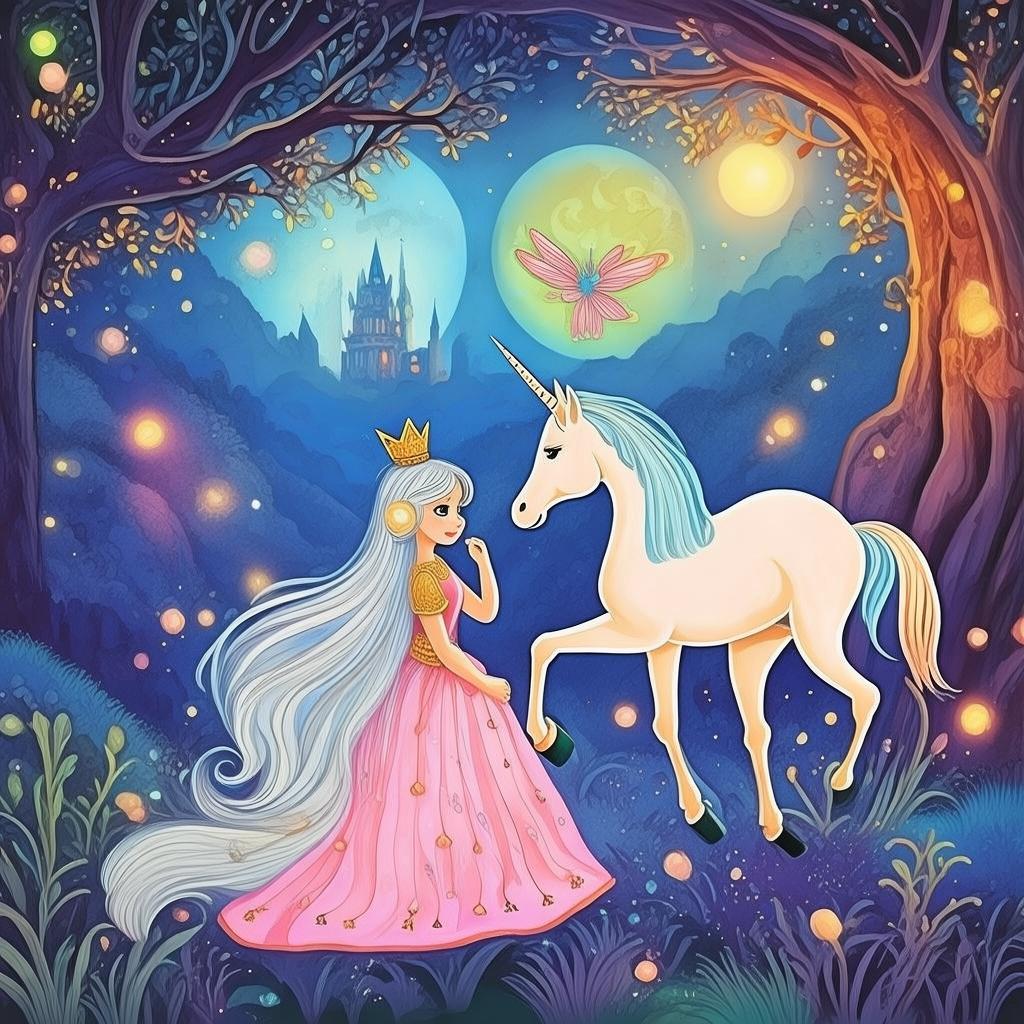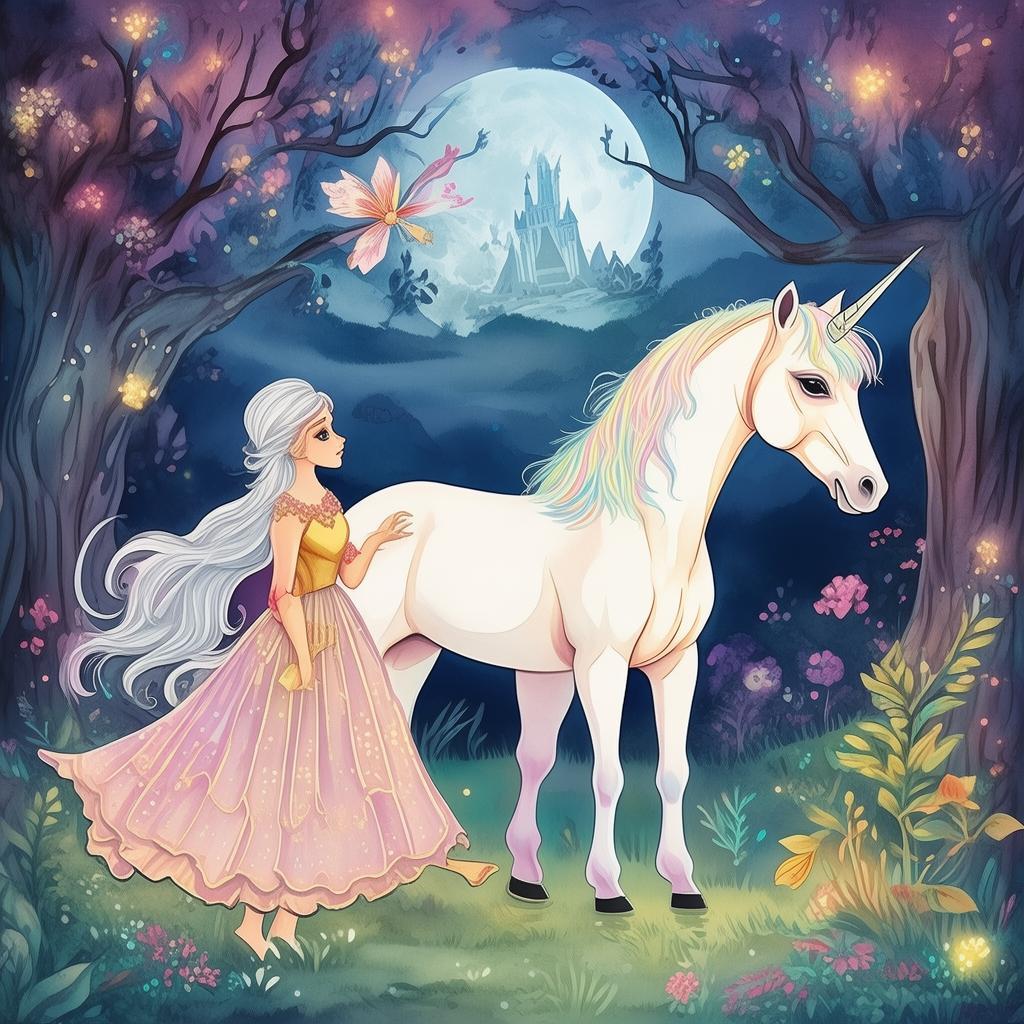The Enigma of the Pharaoh's Pillow
In the quaint village of Sainte-Fleur, nestled between rolling hills and whispering forests, there lived a young girl named Eléonore. She was known for her curious eyes and the way she would sit by the window, gazing at the world beyond. One rainy afternoon, her great-aunt, Mademoiselle Marguerite, a woman of many secrets and even more stories, passed away, leaving behind a small, ornate pillow.
The pillow was unlike any Eléonore had ever seen. It was intricately carved with hieroglyphics and adorned with emeralds that sparkled like stars in the dim light. Aunt Marguerite had always spoken of it in hushed tones, as if it held the key to a long-forgotten treasure. "This pillow," she would say, "is more than just a relic; it is a testament to the ancient riddle of the Pharaoh's Pillow."
Eléonore's curiosity was piqued. She had heard whispers of the riddle, a tale that had been passed down through generations, each family member adding their own spin. Some said it was a quest for hidden riches, while others believed it was a test of one's wit and courage. But no one knew the truth.
As the rain poured down, soaking the cobblestone streets, Eléonore carefully wrapped the pillow in a cloth and tucked it into her satchel. She knew she had to uncover the riddle, to find the answer that had eluded so many before her.
Her journey began the next morning, as she set off into the heart of the forest. The trees loomed over her, their branches like the arms of a giant, guiding her path. She followed the winding trail until she reached a clearing, where a massive stone obelisk stood, covered in carvings.
Eléonore approached the obelisk, her fingers tracing the ancient symbols. She noticed a small, hidden compartment in the base. With a deep breath, she inserted the pillow and felt a click. The obelisk groaned, and a hidden door slowly opened, revealing a dimly lit chamber.
Inside, the air was cool and damp, and the walls were lined with shelves filled with dusty tomes. Eléonore's eyes widened as she realized this was the library of the Pharaoh's Pillow, a place where the answers to the riddle were said to be hidden.
She began to search the shelves, her fingers brushing against the spines of ancient books. One, in particular, caught her eye. Its cover was embossed with the same hieroglyphics as the pillow. She opened it to find a collection of riddles, each more perplexing than the last.
Eléonore spent hours poring over the riddles, her mind racing as she tried to decipher their meanings. The first riddle was simple enough:
"I am not alive, yet I grow; I don't have lungs, yet I need air; I don't have a mouth, yet water kills me. What am I?"
Eléonore pondered this for a while before realizing the answer was fire. The second riddle was more complex:
"I have no head, no tail, but I'm still alive. What am I?"
She guessed correctly that the answer was a broomstick. But the third riddle stumped her:
"I am not alive, yet I can die. I can be born, but I can't grow. What am I?"
Eléonore's mind raced, but she couldn't come up with an answer. Just as she was about to give up, she noticed a small, golden key on the floor. She picked it up and felt a sudden jolt of realization. The key was a clue, a piece of the puzzle.
She returned to the obelisk and inserted the key into the hidden compartment. The obelisk groaned again, and a new door opened, revealing a small, ornate box. Inside the box was a scroll, written in an ancient script.
Eléonore unrolled the scroll and began to read:
"To find the treasure, you must cross the river of time, the desert of deceit, and the mountain of truth. The key to the Pharaoh's Pillow is within you."
Eléonore's heart raced. She realized that the riddles were not just tests of her intelligence; they were tests of her character. She had to face her own fears and overcome her own doubts.
She left the chamber, the scroll tucked safely in her satchel, and continued her journey. The path led her to a river, where she met a mysterious old man who claimed to be a guardian of the river of time. He challenged her to answer a riddle before he would allow her to cross:
"I have no mouth, but I make the trees grow; I have no hands, but I shape the clouds; I have no feet, but I walk the earth. What am I?"

Eléonore thought for a moment and replied, "The wind."
The old man nodded approvingly and allowed her to cross the river. Her next challenge was the desert of deceit, where she encountered a group of bandits who wanted to take the pillow for themselves. Using her wits, she outsmarted them and continued her journey.
Finally, she reached the mountain of truth, where she found a wise old sage who was waiting for her. He asked her to solve the final riddle:
"I am not a god, yet I create life; I am not a man, yet I die; I am not a creature, yet I feel pain. What am I?"
Eléonore thought for a moment and said, "Time."
The sage smiled and nodded. "You have done well, young one. The key to the Pharaoh's Pillow is within you, and now you must return to Sainte-Fleur and face the truth."
Eléonore returned to the village, the pillow still in her satchel. She went to the church, where she found her mother, who had been searching for her since the day of her great-aunt's funeral.
"Mother," Eléonore said, her voice trembling, "I have to tell you something."
She opened the satchel and revealed the pillow. "Aunt Marguerite was not my great-aunt; she was my mother. She had been living in hiding, afraid of the past and the secrets it held."
Eléonore's mother looked at her, tears in her eyes. "I am so sorry, my dear. I never wanted to hurt you. But I had to protect you."
Eléonore wrapped her arms around her mother, feeling the weight of the past lift from her shoulders. She realized that the riddle had not been just about finding a treasure; it had been about finding herself, about facing the truth and forgiving those who had hurt her.
The Pharaoh's Pillow, once a symbol of mystery and intrigue, now held a different meaning. It was a reminder of the past, a testament to the strength of family, and a symbol of the journey Eléonore had undertaken.
And so, Eléonore and her mother returned to the village, their lives forever changed by the enigma of the Pharaoh's Pillow.
✨ Original Statement ✨
All articles published on this website (including but not limited to text, images, videos, and other content) are original or authorized for reposting and are protected by relevant laws. Without the explicit written permission of this website, no individual or organization may copy, modify, repost, or use the content for commercial purposes.
If you need to quote or cooperate, please contact this site for authorization. We reserve the right to pursue legal responsibility for any unauthorized use.
Hereby declared.









